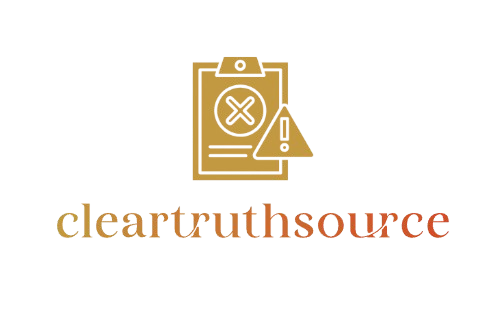When it comes to understanding the world around us, political factors are like the invisible puppeteers pulling the strings of society. They influence everything from your morning coffee price to the latest viral TikTok dance challenge. In a landscape where policies, regulations, and political climates shape daily life, knowing what these factors are can be a game-changer.
Overview Of Political Factors
Political factors encompass the governmental policies and regulations that affect individuals and businesses. These elements include laws, regulations, and political stability that shape the business environment. Governmental decisions can influence tax policies, trade tariffs, and labor laws, directly impacting economic activities.
Economic policies often reflect the political landscape, guiding the direction of fiscal responsibility. When regulatory changes occur, startups and established companies must adapt or face consequences.
Legislation may prioritize certain industries, affecting competition levels. For example, government incentives can bolster renewable energy sectors while imposing restrictions on fossil fuels.
Political stability contributes to investor confidence. A stable political environment promotes growth, while instability may deter investment and disrupt markets.
Additionally, international relations play a significant role. Trade agreements or sanctions can either promote market access or restrict it, impacting global trade dynamics.
Understanding these factors is crucial for making informed decisions. Companies often analyze political climates to assess risks and opportunities. Researching local regulations can prevent compliance issues and enhance strategic planning.
Political factors significantly shape societal norms and economic conditions. Recognizing their complexities aids individuals in navigating personal decisions and businesses in executing strategies successfully.
Understanding Political Factors Definition

Political factors comprise governmental actions, regulations, and stability that influence societal dynamics. Such elements affect both individuals and businesses in various ways.
Importance of Political Factors
Political factors shape the environment in which businesses operate. Regulatory changes can alter market conditions, impacting profitability and investment strategies. An unstable political landscape may deter foreign investments, resulting in economic uncertainty. Investors seek stability to minimize risks and maximize returns. Furthermore, companies must comply with laws governing industries, which affect operational efficiency. Thus, understanding political factors enables organizations to adapt and make informed strategic decisions.
Examples of Political Factors
Several political factors directly affect economic activities. Tax policies often dictate business expenses and profit margins. Trade tariffs can increase costs for imported goods, altering competitive dynamics. Labor laws establish employee rights and workplace standards that influence workforce management. Additionally, government stability fosters an environment conducive to growth. Changes in international relations, such as trade agreements, reshape market opportunities. Each of these factors plays a vital role in defining the operational landscape for businesses and individuals alike.
The Role of Government
Government actions significantly shape the way individuals and businesses function in society. Political factors manifest in various forms, primarily through the functionalities of different government types.
Types of Government and Their Influence
Democracies encourage open dialogue, fostering environments where citizens can influence policies. In these systems, elected officials respond to public concerns, impacting social programs and economic growth. Authoritarian regimes concentrate power, which often leads to swift policy changes but can stifle individual freedoms. These governments might introduce regulations that prioritize state interests, affecting market competition.
Unitary governments maintain centralized control, influencing local governance and economic strategies. Conversely, federal systems distribute power between national and regional authorities, allowing for tailored policies that reflect local needs. Both models show how political structure determines operational frameworks for businesses and personal lives. Understanding these distinctions helps individuals navigate complexities in varying political landscapes effectively.
Impact on Business and Economy
Political factors significantly affect business operations and economic conditions. Government policies directly influence tax structures, thereby impacting profitability. Trade tariffs often dictate the cost of imported goods, affecting pricing strategies. Labor laws shape workforce management practices, influencing staffing and operational costs.
Stability in a political environment promotes investor confidence, encouraging long-term investments. Conversely, political instability can lead to economic uncertainty, causing companies to hesitate. Regulatory changes may alter market dynamics quickly, necessitating businesses to adapt strategies promptly.
Government actions also determine the competitive landscape. Favorable regulations can create a thriving ecosystem for businesses, while stringent policies can impose challenges. Political relationships between countries influence international trade agreements, directly affecting market access and expansion opportunities.
Industry compliance with laws varies based on political climates. Companies that fail to adhere to regulations face penalties, impacting financial performance. Understanding political factors empowers businesses to navigate associated risks effectively.
Examples of specific political factors include changes in tax policy, amendments to labor laws, and varying degrees of government stability. Businesses must monitor these elements continuously to mitigate risks and capitalize on opportunities. Through this approach, organizations enhance their strategic alignment with the broader economic environment.
Conclusion
Political factors are integral to understanding the landscape in which individuals and businesses operate. Their influence extends beyond mere regulations, shaping economic conditions and societal dynamics. By recognizing how governmental actions, stability, and policies impact daily life, stakeholders can make informed decisions that align with the ever-evolving political climate.
Navigating these complexities is essential for both businesses and individuals seeking to thrive in a competitive environment. Staying attuned to political developments not only mitigates risks but also uncovers opportunities for growth and advancement. Ultimately, a keen awareness of political factors empowers stakeholders to adapt and succeed in an interconnected world.

